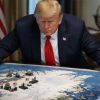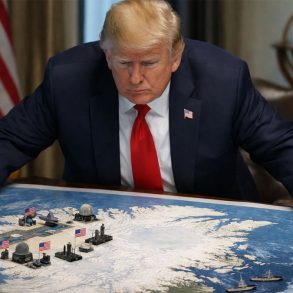Russian President Vladimir Putin surprised observers on Wednesday when he announced that he would be willing to meet with Ukrainian President Volodymyr Zelenskyy in Moscow. Speaking during a visit to Beijing for a military parade commemorating the 80th anniversary of World War II’s end, Putin told reporters, “If Zelenskyy is ready for a meeting, let him come to Moscow.” He added, “I have never refused this, provided the meeting is well-prepared and can lead to some positive potential outcomes.”
The offer came while Putin stood shoulder to shoulder with Chinese President Xi Jinping and North Korean leader Kim Jong Un, both of whom have become increasingly close partners with Moscow. The timing was striking, as Russia launched one of its largest overnight attacks on Ukraine in months. Ukrainian officials reported that 502 drones and 24 missiles crossed the border, with several making it past air defenses to strike energy facilities, rail hubs, and residential areas.
A Call for Negotiation or a Show of Power?
Putin portrayed his invitation as a sign of flexibility. He even claimed that former U.S. President Donald Trump, who is attempting to broker talks, had personally requested that he meet with Zelenskyy. “Donald asked me if I could possibly arrange such a meeting,” Putin said. “I replied that yes, it’s possible. Ultimately, if Zelensky is ready, let him come to Moscow—then the meeting will take place.”
Yet many analysts doubt his sincerity. Former CIA Moscow Station Chief Dan Hoffman argued, “There’s no way that Zelenskyy should be traveling to Moscow.” He warned that Putin was attempting to “make it appear as if he will negotiate in good faith and try and drive a wedge between Zelenskyy and the United States, as well as Zelenskyy and Europe.”
Ukrainian officials were quick to reject the idea of talks in Moscow. Foreign Minister Andrii Sybiha called the invitation “knowingly unacceptable” and reminded the world that neutral countries have already offered to host. “Seven nations have made known their readiness to host peace talks, including Austria, Vatican City, Switzerland, Turkey, and three Gulf states,” he said. “These are serious proposals and President Zelenskyy is ready for such a meeting at any point of time. Yet, Putin continues to mess around. Only increased pressure can force Russia to finally get serious about [the] peace process.”
Zelenskyy himself has long said that he is open to a face-to-face meeting with Putin, but only in neutral territory where neither side holds an advantage. By suggesting Moscow, Putin appears to be demanding that Zelenskyy walk into enemy territory while his country remains under daily bombardment.
The U.S. Tries to Mediate
President Trump has sought to push the two leaders toward negotiations. In August, he gave Putin a two-week deadline to agree to talks with Zelenskyy, a deadline that has already passed. Trump told reporters, “I’ll know pretty much what we’re going to be doing. We’ve taken very strong action. But I’ll be speaking to him over the next few days, and we’re going to see.” He insisted, “I’m going to know exactly what’s happening.”
Trump bristled at criticism that his administration has not acted firmly enough. When pressed by a Polish reporter about whether there had been “no action” against Russia, Trump snapped back, “Ok. How do you know there’s no action? Would you say that putting secondary sanctions on India, the largest purchaser [of Russian oil] — outside of China, they’re almost equal — would you say there was no action? That cost hundreds of billions of dollars to Russia. You call that no action?”
The U.S. president also suggested that more punishments were in the pipeline. “When you say there’s no action, I think you ought to get yourself a new job,” he said sharply.
For Zelenskyy, accepting Putin’s invitation to Moscow would be more than risky; it could be politically disastrous. Russia’s war aims have consistently included removing him from power. To walk into the Kremlin would hand Putin the symbolic victory of appearing as the dominant figure, while leaving Zelenskyy vulnerable to manipulation or even physical harm.
Putin himself has given little reason to trust his intentions. As he invited Zelenskyy, his forces were bombing Kyiv, cutting power to 30,000 homes, striking rail workers, and hitting civilian neighborhoods. Zelenskyy condemned the attacks, writing, “The main targets were civilian infrastructure, particularly energy facilities, a transportation hub, even a garage cooperative, and, as has already become routine for the Russians, residential areas. These are clearly demonstrative Russian strikes. Putin is showing his impunity.”
Neutral Territory Remains the Only Option
European leaders have consistently backed Zelenskyy’s position that talks should be held in a neutral venue, not in Russia. Austria, Switzerland, and Turkey have all raised their hands as potential hosts. Even the Vatican has expressed readiness. In contrast, Putin’s insistence on Moscow seems more like a demand for submission than a path to compromise.
As Foreign Minister Sybiha emphasized, “Only increased pressure can force Russia to finally get serious about peace.” For now, Putin’s invitation looks like another maneuver to shift blame while continuing to wage war. If peace talks are to happen, they must take place on equal footing, not under the shadow of the Kremlin.








